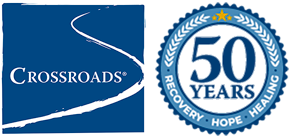Cocaine Addiction Treatment Center
Cocaine, also known as crack, coke, or blow, is a fast-acting stimulant drug that increases the dopamine levels in the brain. Cocaine users experience euphoric emotions such as elevated mood and boosted self-motivation, thus triggering addiction and sometimes dependency on the substance. While initially, it may leave people feeling great, the effects quickly wind down, leaving them craving for more. Dependency on the substance’s effects makes cocaine abusers intake cocaine by smoking, snorting, or injecting the substance into their body as a form of recreation. At the cocaine addiction treatment center in Portland, Maine, Crossroads helps those with a cocaine addiction recover.
Once cocaine addiction takes hold, it can be difficult to see any other path since individuals become so consumed in this lifestyle. If tolerated, cocaine addiction can become a vicious cycle that interferes with everything else in the user’s life. However, recovery is possible through a comprehensive cocaine addiction treatment program at cocaine addiction rehab centers in Maine.
Signs of Cocaine Addiction
 Knowing the signs and symptoms of cocaine addiction can help friends and families determine if their loved ones are suffering from substance abuse. Here are the most common signs and symptoms that can be seen from cocaine users:
Knowing the signs and symptoms of cocaine addiction can help friends and families determine if their loved ones are suffering from substance abuse. Here are the most common signs and symptoms that can be seen from cocaine users:
- Hyperactivity
- Decrease in appetite
- Involuntary movements
- Hypersensitivity to lights and sounds
- Disinhibition
Effects of Cocaine Addiction
Because cocaine intake directly affects the brain, a cocaine user is very much susceptible to the negative effects the substance can cause to the human mind and body. Below are the effects of cocaine abuse on an individual that need help from a cocaine addiction treatment center.
Increased nausea
Nausea or involuntary vomiting is often accompanied by unease or discomfort. It is caused by various factors such as sensitivity to movement and an upset stomach. As cocaine causes hypersensitivity and a decrease in appetite, increased sensitivity to the surroundings and hyperacidity due to lack of eating are the most probable reasons why a user suffers from nausea. However, cocaine and nausea can be co-related to the sinus area, due to snorting of the substance, which may also be one of the causes.
Frequent headaches and migraines
It must not come as a surprise for cocaine users to experience frequent headaches more than usual, as the chemicals contained in the said substance primarily functions to affect the brain. Experts suspect that the main cause of cocaine-induced headache is the imbalance between dopamine and serotonin. Experts also found that continuous abuse of cocaine could worsen headaches into migraines.
Anxiety and Depression
Anxiety is defined as a feeling of nervousness about an imminent event with an uncertain outcome, while depression is described as severe feelings of hopelessness and unhappiness. As the simple intake of cocaine plays a major role in affecting emotions and moods, its abuse can cause major changes in the brain chemicals, giving the user anxiety and/or depression.
Paranoia
Paranoia is a mental condition characterized by delusions of persecution, unwarranted jealousy, or exaggerated self-importance. Some paranoia may be caused by hallucinations caused by the stimulus brought by cocaine use. However, not all paranoia situations are accompanied by hallucinations.
Higher risk of seizures, strokes, and heart attacks
Cocaine does not only affect the brain but other parts of the body as well. Experts found that cocaine abuse causes higher blood pressure, stiffer arteries, and thicker heart muscles that can lead to seizures, strokes, and heart attacks.
Treatment at a Cocaine Addiction Treatment Center
Although some cocaine addiction cases may seem hopeless, Crossroads believes that through proven rehabilitation methods, clients can break their addiction and begin the rebuilding process. The cocaine addiction rehab center in Maine is an opportunity for clients to recognize the impact that addiction has on their life and make positive changes to build a healthier lifestyle.
At Crossroads, we acknowledge that not everyone is affected by cocaine addiction in the same way. And so, before entering our treatment programs, our clients undergo a comprehensive evaluation to determine their individual needs and goals. Then, a personalized treatment plan is developed to support success in recovery at the cocaine addiction treatment center.
The treatment plans usually begin with the treatment process, so the brain could return to its normal functions. Through a safe, supervised treatment program, clients can overcome withdrawal symptoms and begin the healing process. For the treatment process, Crossroads use evidence-based therapy which consists of effective ways to manage cravings, identify triggers, process trauma, and develop valuable coping skills to reduce the risk of relapse.
Approach of Cocaine Addiction Treatment
Crossroads’ residential treatment programs are designed to address addiction through a multi-faceted approach. Clients are engaged in individual and group therapies, recreational activities, educational sessions, holistic activities such as meditation and more. They learn to manage mental health, build healthier relationships, and develop routines that support sobriety. The cocaine addiction treatment center helps clients to increase their independence, reinforce positive behaviors, and practice sound decision-making in recovery.
Family involvement is also encouraged to address the broader impact of addiction and facilitate healing and recovery. Families must work together to create a positive environment and reduce the risk of relapse. Clients and their families must understand that there is life after cocaine addiction, and at Crossroads women and men engage in the cutting-edge, gender-responsive addiction treatment necessary for lasting recovery.
Cocaine can cloud the enjoyment of everyday activities, but rehab will help clients remember who they wanted to be. Through the cocaine addiction treatment center in Portland, Maine, they can tackle challenges with more confidence and motivation.
If you are suffering from cocaine addiction or have a loved one who does, do not hesitate to contact us so the needed rehabilitation and treatment can start immediately. You don’t have to go through addiction alone, call 877.978.1667 today.

 Knowing the signs and symptoms of cocaine addiction can help friends and families determine if their loved ones are suffering from substance abuse. Here are the most common signs and symptoms that can be seen from cocaine users:
Knowing the signs and symptoms of cocaine addiction can help friends and families determine if their loved ones are suffering from substance abuse. Here are the most common signs and symptoms that can be seen from cocaine users: